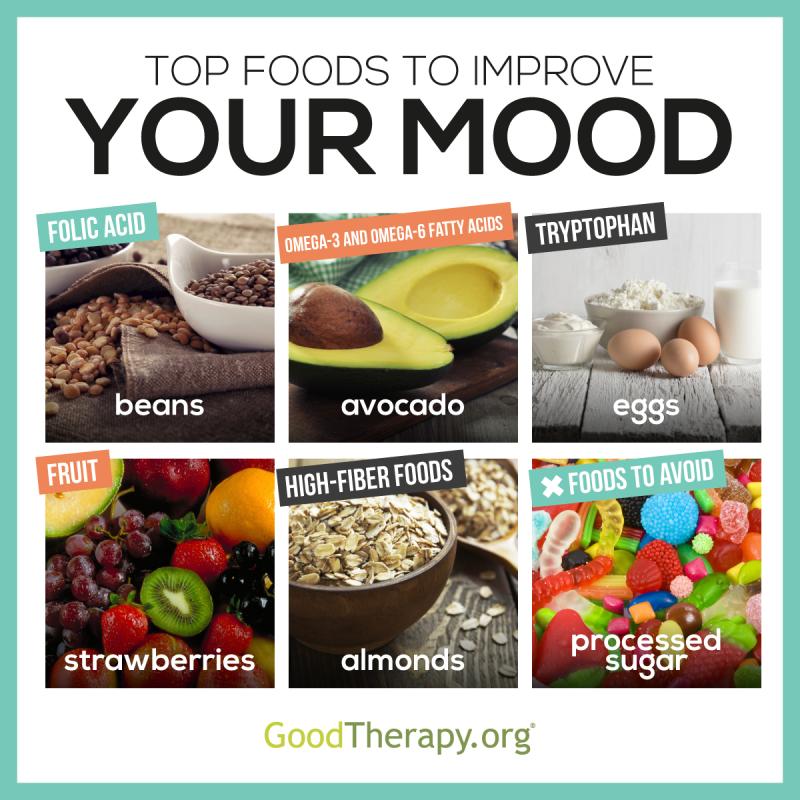What food fits your mood?
Matching food to your mood is a subjective experience, as food preferences and cravings can vary widely depending on individual tastes, cultural influences, and personal preferences. However, certain foods are commonly associated with particular moods or emotions due to their taste, texture, aroma, and nutritional properties. Here are some examples:
Comfort Foods: When feeling stressed, anxious, or in need of emotional comfort, many people crave familiar, indulgent foods that evoke a sense of warmth and nostalgia. Comfort foods often include dishes such as macaroni and cheese, mashed potatoes, chicken soup, chocolate, ice cream, and baked goods like cookies or pie.
Energizing Foods: If feeling tired, lethargic, or in need of a pick-me-up, energizing foods can help boost mood and increase alertness. These foods are often high in protein, complex carbohydrates, and nutrients that provide sustained energy. Examples include lean proteins like chicken or fish, whole grains like quinoa or oats, fruits rich in natural sugars like bananas or berries, and nuts or seeds for healthy fats and protein.
Mood-Boosting Foods: Certain foods are believed to have mood-enhancing properties due to their nutrient content or effects on brain chemistry. Foods rich in omega-3 fatty acids, vitamins, and minerals are thought to support mood regulation and mental well-being. Examples include fatty fish (salmon, mackerel), leafy greens (spinach, kale), berries (blueberries, strawberries), nuts and seeds (walnuts, flaxseeds), and dark chocolate.
Indulgent Treats: Sometimes, indulging in a favorite treat can lift spirits and provide a temporary mood boost. Whether it's a decadent dessert, a savory snack, or a special drink, indulgent treats can provide a moment of pleasure and enjoyment. Examples include gourmet chocolates, artisanal cheeses, specialty coffees or teas, and rich desserts like cheesecake or tiramisu.
Fruit and Vegetable Juices: Fresh fruit and vegetable juices can be refreshing and hydrating, providing essential vitamins, minerals, and antioxidants. Depending on the ingredients, juices can range from sweet and fruity to tangy or savory. Experimenting with different juice combinations can help create a beverage that matches your mood and tastes.
Ultimately, the key is to listen to your body and pay attention to your cravings and preferences. Choosing foods that you enjoy and that make you feel satisfied and nourished can help support overall well-being and enhance mood and satisfaction.
How can different types of food influence or align with one's emotional state?
The connection between food and mood is a complex interplay between physiological, psychological, and social factors. While the exact mechanisms are still being researched, there is growing evidence suggesting that what we eat can influence our emotional state in several ways:
1. Impact on Gut Microbiome and Brain Health:
- The gut microbiome, the trillions of microorganisms residing in your intestines, plays a crucial role in digestion and overall health.
- Emerging research suggests a two-way communication between the gut and the brain, often referred to as the gut-brain axis.
- Certain dietary choices can influence the composition of the gut microbiome, potentially impacting the production of neurotransmitters like serotonin, dopamine, and GABA, which significantly influence mood and emotional regulation.
- Diets rich in probiotics (beneficial gut bacteria) and prebiotics (foods that nourish gut bacteria) are generally associated with positive mood and reduced risk of depression and anxiety.
2. Blood Sugar Regulation:
- Fluctuations in blood sugar levels can significantly impact mood and energy levels.
- Diets high in refined carbohydrates and added sugars can lead to rapid spikes and crashes in blood sugar, potentially contributing to mood swings, irritability, and fatigue.
- Choosing complex carbohydrates with high fiber content helps regulate blood sugar levels, promoting sustained energy and potentially contributing to improved mood stability.
3. Nutritional Deficiencies:
- Deficiencies in certain nutrients, including vitamin B12, vitamin D, iron, and omega-3 fatty acids, have been linked to an increased risk of depression and anxiety.
- Ensuring a balanced diet rich in various fruits, vegetables, whole grains, and lean protein sources helps ensure you're getting the essential nutrients your body needs to support neurotransmitter production and overall brain health.
4. Food as a Source of Pleasure and Reward:
- Food can provide a sense of pleasure and satisfaction, triggering the release of mood-boosting neurotransmitters like dopamine.
- While indulging in occasional treats can be part of a healthy lifestyle, consistently relying on unhealthy foods for comfort or reward can lead to negative consequences on both physical and mental health.
5. Social and Cultural Aspects:
- Sharing meals and preparing food can be socially bonding experiences, contributing to feelings of connection and well-being.
- Some cultures associate specific foods or meals with celebrations, traditions, or religious practices, fostering positive emotions and memories.
It's important to remember:
- Food is not a cure-all for mental health concerns. However, making conscious choices towards a nutrient-rich, balanced diet can contribute to overall well-being and potentially play a supporting role in managing mood and emotional health.
- Individual responses to food can vary. What makes one person feel energized might have a different effect on another. It's important to pay attention to how different foods make you feel and adjust your dietary choices accordingly.
- Consulting a healthcare professional or registered dietitian is crucial if you are struggling with significant or persistent mental health challenges or have concerns about your diet. They can provide personalized guidance and support tailored to your specific needs.












